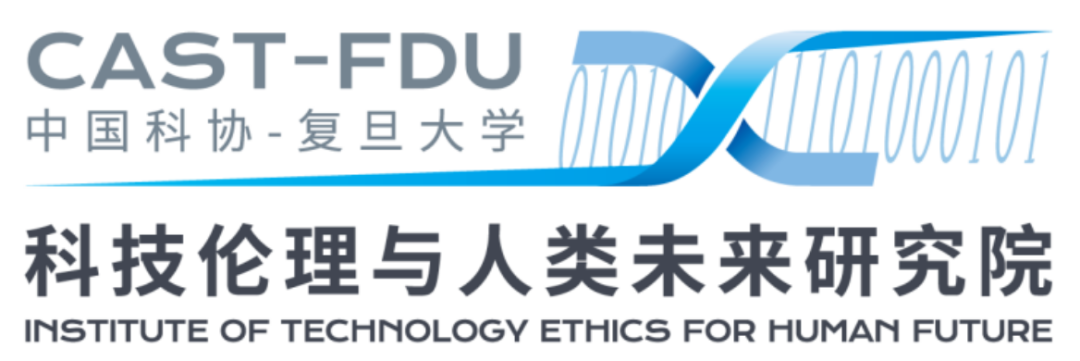Suggestions On The Prevention Mechanism And Approach Of My Country's Artificial Intelligence Ethical Risk
Suggestions On The Prevention Mechanism And Approach Of My Country's Artificial Intelligence Ethical Risk
Source: "Innovation Research Report" No. 12 (Total No. 549) 2023-3-6 [Note] Today, with the rapid development of high-tech, artificial intelligence, as a disruptive technology, has also had a profound impact on people's production and life.
[Note] In today's rapid development of high-tech, artificial intelligence, as a disruptive technology, has also had a profound impact on people's production and life. Accompanying technological progress, the uncertainty and negative effects brought about by artificial intelligence have gradually spilled out, becoming a hot topic that the international community is paying close attention to. The current practical "suspended" approach to ethical risk prevention in my country, imbalance in policy supply, and unclear responsibility boundaries have put forward deeper requirements for strengthening the research on the prevention mechanism and approach of artificial intelligence ethical risk prevention. To this end, the research team of the China Association for Science and Technology Innovation Strategy Research Institute proposed to actively follow up on the international development trend, strive for field development and ethical discourse power; clarify and operate the prevention of ethical risks in artificial intelligence; pilot projects first, gradually improve the policy and regulatory system; strengthen the boundaries of responsibility, and improve the ethical review system and other countermeasures.
With the rapid development and widespread application of artificial intelligence, how to maximize the benefits of artificial intelligence to mankind rather than harm has become a hot topic of general concern to international organizations, governments, academic circles and the public. Among them, whether it is the clarification of the ethical risks of artificial intelligence, the attention to preventing the ethical risks of artificial intelligence, or the emphasis on participating in the international governance of artificial intelligence, it requires the discussion of the mechanism and approach to prevent artificial intelligence ethical risks from theory to practice, that is, the operation of theoretical research to a more realistic and specific level.
1. The necessity of strengthening the mechanism and approach of preventing ethical risks of artificial intelligence
As a science and technology with a wide range of influence and strong disruption, the potential impact of artificial intelligence on social structure, institutional ethics, individual values, international relations, etc. has made scientific and effective prevention of the ethical risks of artificial intelligence a problem that cannot be avoided.
First, prevention of ethical risk of artificial intelligence has become an international hot topic
Since 2016, countries and various organizations around the world have released a large number of plans and reports related to the prevention of ethical risks of artificial intelligence. Although some reports are not specifically targeting the prevention of ethical risks in artificial intelligence, almost all reports attach great importance to the prevention of ethical risks. In September 2016, the British Standards Association issued the "Guidelines for Ethical Investigation and Application of Robots and Machine Systems", stating that the research on artificial intelligence ethics should be carried out under the guidance of industry-set standards; the European Commission passed the legislative proposal for "Artificial Intelligence" in April 2021, proposing major arrangements for passing institutional norms to avoid risks; from July 2017 to January 2021, my country successively issued a series of documents such as the "New Generation Artificial Intelligence Development Plan" and the "Practice Guidelines for Cyber Security Standards - Guidelines for the Prevention of Risks of Artificial Intelligence Ethical Security" to stipulate the development purpose, discussion methods, governance principles, etc. of the ethical issues of artificial intelligence. It is not difficult to see from the theoretical analysis and practical construction of the prevention of artificial intelligence ethical risk by various countries and organizations that the prevention of artificial intelligence ethical risk has become a topic of common concern in the international community.
Second, the uniqueness and openness of the ethical risks of artificial intelligence
On the one hand, the rapid development of information technology has brought about the "4A" revolution (factory automation FA, office automation OA, laboratory automation LA and home automation HA). While the revolutionary achievements improve the quality of people's participation in various activities and bring huge social benefits, they also contain huge ethical risks, and are very likely to threaten the health and survival of the entire human society. This is manifested in the difference and instability of the intersection and closeness between artificial intelligence and many factors after intervening in the field of social information, making the risks it brings are often difficult to predict. In the absence of certainty, the controllability of post-event intervention measures is often directly weakened. Therefore, it is necessary to pay forward attention and study ethical issues related to the information field.
On the other hand, although artificial intelligence reflects the revolutionary value of technological updates in many fields, the risk of gradually expanding during application needs to be paid more attention to. For example: intelligent push algorithms may cause polarization and "information cocoon", facial recognition may cause privacy infringement, and "big data killing old customers" may cause price discrimination. It can be said that ethical issues brought about by the rapid development of artificial intelligence and large-scale application have become open issues involving many aspects of human society.
Third, the boundaries of responsibility for the ethical issues of artificial intelligence are blurred
As a relatively complex artificial practice, artificial intelligence ethics contains the diverse interest demands and multiple conflicts of interest of human actors, non-human actors and special action participants. Human actors mainly include rule makers, designers of intelligent machines, users of intelligent technology, and regulators of intelligent technology. The diverse representation of different stakeholders and value subjects enables artificial intelligence to exist in the form of a complex social network among human actors. The application results of artificial intelligence may cause risks of infringement of individual rights or transfer of social rights structures. The diversity of subject composition requires that ethical principles complete the individual-to-group transformation in terms of their scope of action, but also makes ethical responsibilities more vague in subject ownership.
2. The current problems in the prevention mechanism and approach of artificial intelligence ethical risk in my country
Faced with the possible ethical risks of artificial intelligence, government management departments, various management organizations, university research institutions, various academic groups and enterprises have all released relevant plans and reports to analyze and explain. Overall, there are mainly the following problems.
First, the practical level: the mechanism and approach to prevent artificial intelligence ethical risk are more limited to the theoretical level
Judging from the existing research results, there are both macro planning and micro analysis. In short, the former mainly discusses principles and ideas, and tries to explore and construct links that effectively prevent the ethical risks of artificial intelligence. The latter starts from the micro sector, focuses on specific issues, and analyzes the practical ways to prevent the ethical risks of artificial intelligence. However, in fact, although the current research on the prevention of ethical risk of artificial intelligence has covered many aspects horizontally, it is generally mainly based on theoretical discussions, lacks operability, and is difficult to put into practical practice. In other words, since there is no guarantee measure to implement theories and principles of risk prevention, ethical principles are just like "cold others", which leads to the dilemma of "deficiency of practicality". In this sense, in order to prevent ethical principles from becoming some abstract concepts, they must be penetrated and reflected in all links and entire processes of artificial intelligence technology research and development and application.
Second, the institutional level: insufficient supply of policies and regulations and imbalance
As the impact of artificial intelligence on human production and life becomes increasingly profound, some organizations and institutions have conducted discussions on related issues and issued a number of suggestions on artificial intelligence ethical guidelines. But overall, these policy formulations focus on macro-level industrial promotion and lack guidance for specific areas. It is manifested as: for the products and fields that have appeared, both at the national and local levels, the number of relevant policies and regulations is relatively small. For areas such as smart medical care and smart finance that involve group interests and are at high risk, the policy measures of industrial promotion and risk management show quantitative shortcomings. In the fields of drones, autonomous driving, intelligent medical care, etc., there is insufficient supply of systematic and standardized policies and regulations, that is, whether it is the promotion policy of the artificial intelligence industry at the macro level or the guidance policy of the artificial intelligence industry in specific fields such as drones and autonomous driving, it has shown an unbalanced supply trend.
Third, the subject level: the loss of responsibility subtraction makes it more difficult for ethical review
To improve ethical review, we must first solve the problem of law. Establishing rules and regulations is a priority problem, and we should not talk about ethical review through this link. The "black boxing" of the production and operation process of artificial intelligence algorithms not only makes it difficult to advance effective supervision, but also makes accountability in trouble because of the opacity of its operation process and the complexity of governance rules. In other words, entering the era of artificial intelligence, the technology intersection and reorganization behind the complexity of artificial intelligence has differentiated the "first responsible person for technical risks", while integrating more professional and diversified technical workers into its development process. The "sharing" or "dividing" of responsibilities brought by multiple subjects makes traditional technical responsibility ethics no longer able to adapt to the needs of ethical development. Although all majors are currently trying to explore their own ethical review separately, most of them are repeated on the basis of common rules and have not truly solved the special requirements for ethical review based on the different characteristics of multiple subjects.
3. Countermeasures and suggestions for promoting the ethical risk mechanism and approach of artificial intelligence
The existence of ethical risks of artificial intelligence does not mean that development should be restricted. Instead, based on macro planning, trace the root causes of the problems, analyze the right medicine in detail, and propose effective measures to deal with and prevent ethical risks.
First, actively follow up on the international development trend and strive for the right to speak in the field and ethical discourse
According to statistics from the German non-profit Watch, so far, more than 160 institutions or organizations around the world have put forward ethical guidelines and suggestions on the development of artificial intelligence. In 2016, the United States promulgated "Preparing for the Future of Artificial Intelligence" to make forward-looking plans for the future development of artificial intelligence; in the same year, the United Kingdom released "Artificial Intelligence: Opportunities and Impacts of Future Decision Making", proposing that the complexity and advancement of artificial intelligence are both opportunities and challenges. In this way, all kinds of attention are paid to the normative and governance issues of artificial intelligence. Organizations or conferences represented by the Organization for Economic and Economic Affairs (OECD) and the G7 (G7) have become the main forum for formulating the ethical principles of artificial intelligence and exploring the impact of artificial intelligence. International norms for soft law in the field of artificial intelligence are about to emerge. Among them, Japan, the EU, the United States and the United Kingdom play a leading role by proposing their respective draft ethical principles, which will have the potential to become international rules on artificial intelligence in the future. In this context, we must attach great importance to ethical disputes under different social situations, and use this as a reference, combined with our country's special cultural traditions and value pursuits, discuss the basic norms and value principles that may be applicable to our country, and give answers to our country's ethical issues with local elements, providing reference for the generation and governance practices of relevant norms, and while participating in the discussion and determining the boundaries of cutting-edge exploration, we strive for more ethical discourse power in the field to develop.
Second, conduct an operational explanation of the prevention of ethical risks of artificial intelligence
In March 2022, the General Office of the CPC Central Committee and the State Council issued the "Opinions on Strengthening the Governance of Science and Technology Ethics", which, on the basis of deeply explaining the importance of science and technology ethics governance, proposed to improve the ability to prevent potential risks brought by scientific and technological innovation and promote the development of science and technology to always be good. This opinion not only points out that the research on the prevention of artificial intelligence ethical risks should shift from theoretical discussion to combining with industrial development, but also puts forward more urgent requirements for improving the artificial intelligence ethical governance system. Against this background, it has become necessary and urgent to establish a dialogue and communication mechanism between ethics scholars and scientific and technological workers and other related workers. That is, ethics scholars are no longer limited to writing academic papers, but instead take the initiative to go to artificial intelligence laboratories and manufacturing enterprises to gain an in-depth understanding of the status of artificial intelligence product research and discovery and the effectiveness and shortcomings of current ethical risk prevention measures. They should not only tell scientific and technological workers "what should be done", but also assist scientific and technological workers in solving more specific and detailed problems such as "how to do and what should be avoided", and work with scientists, academic groups, entrepreneurs, and government management departments to solve specific practical problems.
Third, pilot projects will be the first, and gradually improve the policy and regulations system
The development of artificial intelligence not only raises new issues that require legal response in many aspects of social life, but also forms the driving force for the change of the law itself. The current problems such as insufficient supply of artificial intelligence regulations and systems seriously restrict the scientific and standardized development of artificial intelligence. How to timely estimate the impact of artificial intelligence technology while ensuring controllable risks and formulate corresponding response plans.
Strengthen scientific evaluation, mobilize and give full play to existing advantages, dynamically evaluate and respond to the technological development situation, accurately grasp the overall picture of current policies and regulations, and strengthen forward-looking predictions and increase advantages on the basis of filling in the shortcomings.
Prudent legislation. The law has the characteristics of stability, lag and clear rewards and punishments, so the application of legislative and regulatory measures should be more cautious. In the process of specific formulation, we must not only pay attention to the different functions of laws at different stages, but also promptly absorb the consensus opinions of the legal and technical communities into relevant legislation, and use pilot methods to test the implementation effect of the law, and then promote successful experiences across the country.
Fourth, clarify the boundaries of responsibility and improve the ethical review system
The uniqueness and openness of artificial intelligence not only makes artificial intelligence ethics itself involve more subjects and puts responsibility into a vague dilemma, but also makes it more difficult to review ethical review before, during and after the development of artificial intelligence technology.
On the one hand, build a network channel that can communicate in a timely manner. On the basis of strengthening consultation and exchanges between the government and research institutions, technical experts, social organizations and the public, discuss the rights and responsibilities of the relevant responsible parties in artificial intelligence risk prevention and risk governance, create a sense of responsibility and responsibility behavior, and form a governance system and mechanism that can effectively respond to uncertainty.
On the other hand, we will strengthen forward-looking and preventive assessment of the development of artificial intelligence technology, mirror the generation and practical logic of artificial intelligence technology, and on this basis, "spy" the possible ethical problems of artificial intelligence and effectively prevent them, so as to promote artificial intelligence to develop in a more standardized and safe direction.
Source: Research project of the China Association for Science and Technology Innovation Strategy Research Institute "Responsibility Ethics Research on Frontier Major Scientific and Technological Innovation"
China Engineering Science and Technology Knowledge Center is a national engineering science and technology field information aggregation center, data mining center and knowledge service center approved by the state.
Knowledge Center Website:





